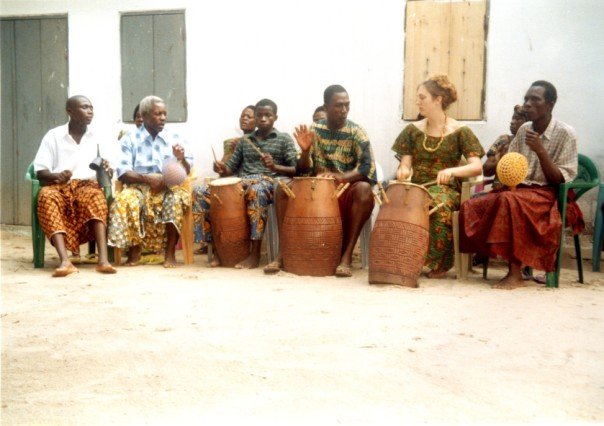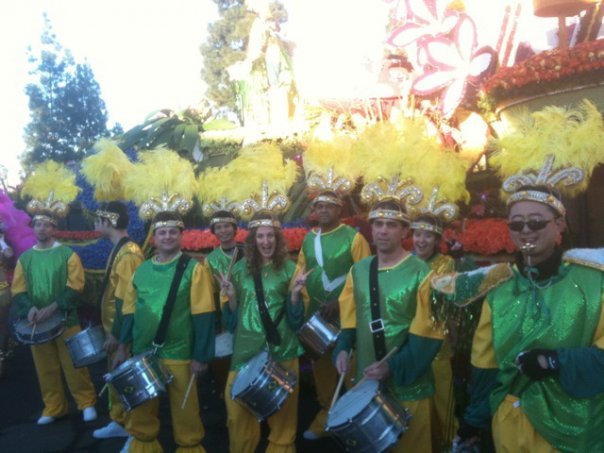Every culture of the world has its own form of music, as distinct and unique to its area as language and cuisine. In every part of the world, there are different scales and musical formats used, and these create a form of music that has its own signature. Then when you add in the cultural themes, the variety of instruments, and the forms of voice singing that can go along with it, music is a truly endless adventure. International Music Day (or World Music Day) celebrates this adventure!
International Music Day was started in 1975 by Lord Yehudi Menuhin to encourage the promotion of musical art among all sections of society. However, I have noticed that in our own society, learning to sing or play an instrument is often seen as an activity for children – perhaps an amusing pastime to pad a college resume, but beyond that, of little use in the real world. As a professional drummer, percussionist, and piano teacher, I have had the pleasure of working with students of all ages, but I especially enjoy working with adults. I once persuaded Sharon, one of my adult students, to perform in a piano recital. I knew that this would give her the motivation to practice and an opportunity to share her ability with her friends and family.
After the performance, she told me she did not plan to participate in a recital again. She said she felt self-indulgent. I could see where she was coming from; out of about twenty performers in the recital, only three of them were adults. On the other hand, I often find myself counting the “13.1” and “26.2” bumper stickers I see on my way to work each morning; no one seems to think that there is anything self-indulgent about adults participating in sports!
In 2007, I spent eleven weeks studying the traditional music of the Anlo-Ewe society in southeastern Ghana. What struck me the most about the experience was seeing the way the children learned. Anlo-Ewe music consists of drumming, singing and dancing. All of the adults in the village were proficient in at least two of the three areas. Instead of weekly music lessons, the children learned through watching the adults and participating as they grew old enough.

I saw something similar when I studied samba drumming in Rio de Janeiro, Brazil a year later. It was such a stark contrast to our own society where parents are often little more than chauffeurs to their young children’s activities. Why the reason for this discrepancy? There is the belief that children learn music more quickly and easily than adults do. There is also the prevalence of shame in our society; just watch the way judges treat contestants on popular shows like American Idol!
There is also the fact that the recordings we hear on the radio have reached a level of perfection similar to that of the airbrushed models we see in fashion magazines. Many adult musicians compare their own playing or singing with these overproduced recordings and think, “Why bother?”

However, I believe there is an undercurrent of resistance to this belittling of amateur musicians. Books like The Artist’s Way or the more recent Big Magic remind us all that living a creative life brings joy and inspiration to others. I also see many talented performers at local open mic nights including the one at our very own Hera Hub Sorrento Valley. Even Sharon came to see the benefits of her own performance. At our next lesson, she mentioned to me that her five-year-old son had been inspired by seeing her perform – so much so that at his soccer game immediately following the recital, he scored two goals. He was excited to start learning the piano, and she looked forward to working with him herself before signing him up for formal lessons. It is my hope that within my lifetime, I will be able to start counting bumper stickers that say things like “Moonlight Sonata,” “Nocturnes,” or maybe even “Stairway to Heaven.”
Happy International Music Day!
 Catherine Barnes is a San-Diego based musician recognized as an adept performer and teacher of a wide variety of musical styles. A classically trained percussionist, she received her Bachelor of Music degree in percussion performance from Northwestern University in 2008. She received the J. William Fulbright scholarship for percussion studies in Rio de Janeiro, Brazil in 2008. She also studied traditional Anlo-Ewe drumming in Ghana, West Africa in 2007 on an undergraduate research grant from Northwestern University.
Catherine Barnes is a San-Diego based musician recognized as an adept performer and teacher of a wide variety of musical styles. A classically trained percussionist, she received her Bachelor of Music degree in percussion performance from Northwestern University in 2008. She received the J. William Fulbright scholarship for percussion studies in Rio de Janeiro, Brazil in 2008. She also studied traditional Anlo-Ewe drumming in Ghana, West Africa in 2007 on an undergraduate research grant from Northwestern University.
Visit her website for more information. Connect with Catherine on Twitter @SanDiegoDrum.





